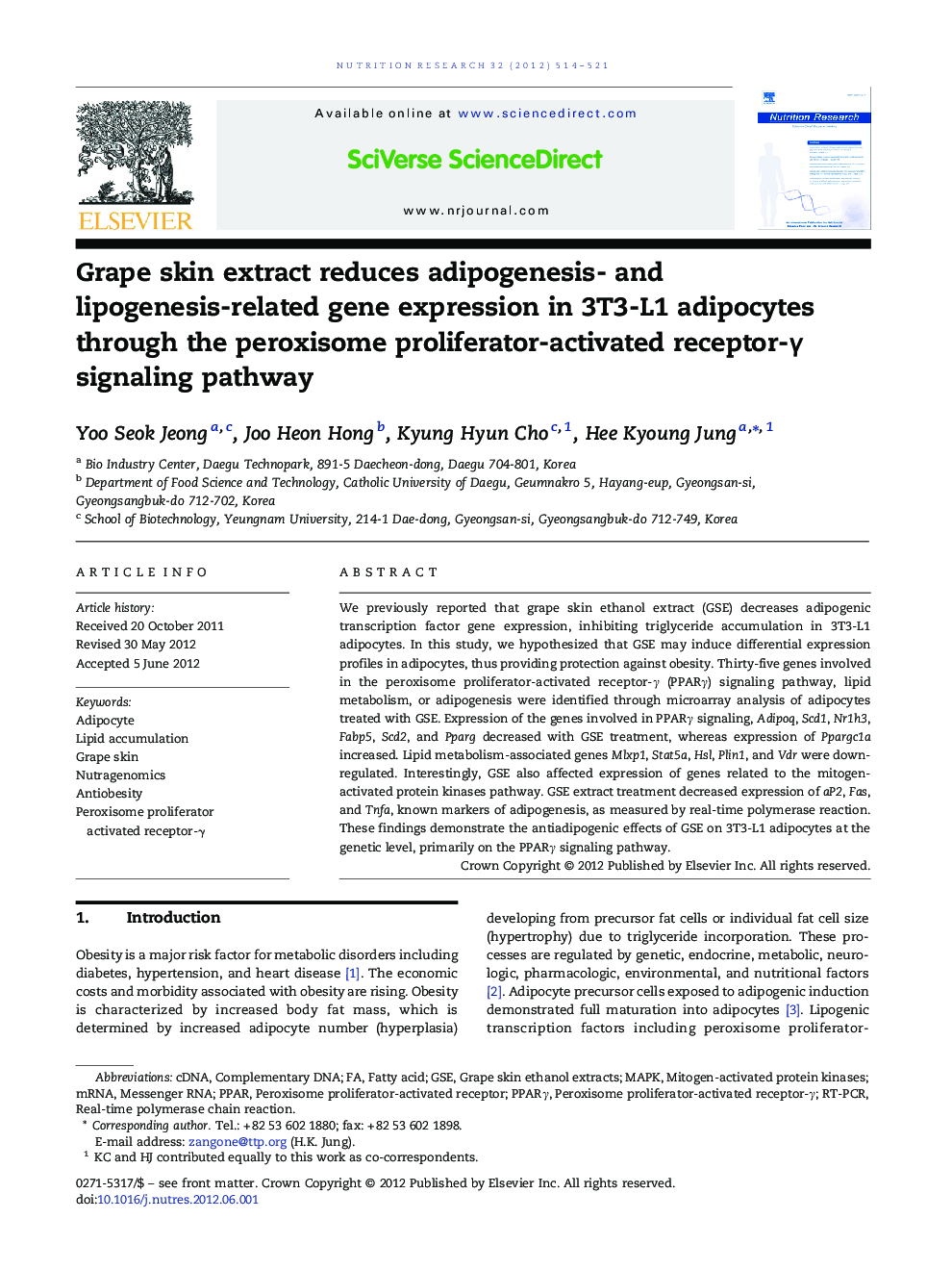| Article ID | Journal | Published Year | Pages | File Type |
|---|---|---|---|---|
| 5904631 | Nutrition Research | 2012 | 8 Pages |
We previously reported that grape skin ethanol extract (GSE) decreases adipogenic transcription factor gene expression, inhibiting triglyceride accumulation in 3T3-L1 adipocytes. In this study, we hypothesized that GSE may induce differential expression profiles in adipocytes, thus providing protection against obesity. Thirty-five genes involved in the peroxisome proliferator-activated receptor-γ (PPARγ) signaling pathway, lipid metabolism, or adipogenesis were identified through microarray analysis of adipocytes treated with GSE. Expression of the genes involved in PPARγ signaling, Adipoq, Scd1, Nr1h3, Fabp5, Scd2, and Pparg decreased with GSE treatment, whereas expression of Ppargc1a increased. Lipid metabolism-associated genes Mlxp1, Stat5a, Hsl, Plin1, and Vdr were down-regulated. Interestingly, GSE also affected expression of genes related to the mitogen-activated protein kinases pathway. GSE extract treatment decreased expression of aP2, Fas, and Tnfa, known markers of adipogenesis, as measured by real-time polymerase reaction. These findings demonstrate the antiadipogenic effects of GSE on 3T3-L1 adipocytes at the genetic level, primarily on the PPARγ signaling pathway.
